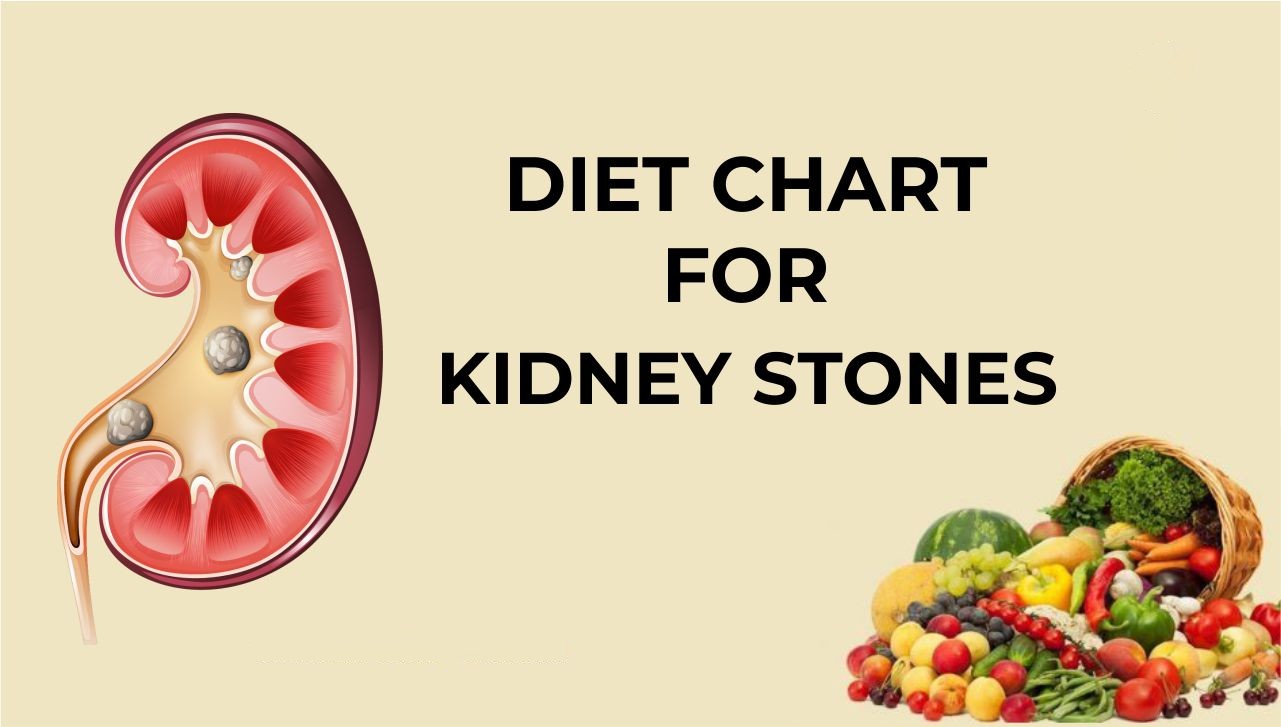Kidney Stone Diet Plan and Prevention

What is a kidney stone?
A kidney stone is a hard mass that forms from crystals in the urine. For most people, natural chemicals in the urine keep stones from forming and causing problems.
Are all kidney stones the same?
No. The most common types of kidney stones are calcium stones followed by uric acid stones. Diet changes and medical treatment are individualized based on the type of stone, to prevent them from coming back.
What is the most important factor to prevent kidney stone formation?
- Stay well-hydrated by drinking 2-3 quarts of water (8-12 cups) daily to prevent kidney stones.
- Be cautious of activities causing excessive sweating, as dehydration can lead to decreased urine production and mineral deposits in the kidneys. Avoid sugary beverages and consult a healthcare professional for personalized hydration advice.
What kind of diet plan is recommended to prevent stones?
There is no single diet plan for stone prevention. Most diet recommendations are based on stone types and individualized for each person.
- Calcium Oxalate Stones: most common stones:
- High-oxalate foods like peanuts, rhubarb, spinach should be limited.
- Consume calcium-rich foods (milk, yogurt) with oxalate-rich foods during meals to reduce stone formation.
- Maintain a recommended daily calcium intake of 1000-1200 mg, and cut back on sodium to prevent calcium leakage.
- Uric acid stones: another common stone:
- Reduce high-purine foods like red meat, organ meats, shellfish, and limit alcohol intake.
- Adopt a diet rich in vegetables, fruits, whole grains, and low-fat dairy to decrease urine acidity.
- Avoid short-term diets and limit sugar-sweetened foods to prevent uric acid stone formation.
Will it help or hurt to take a vitamin or mineral supplement?
The B vitamins which include thiamine, riboflavin, niacin, B6 and B12 have not been shown to be harmful to people with kidney stones. In fact, some studies have shown that B6 may actually help people with high urine oxalate. However, it is best to check with your healthcare professional or dietitian for advice on the use of vitamin C, vitamin D, fish liver oils or other mineral supplements containing calcium since some supplements can increase the chances of stone formation in some individuals.
Diet Recommendations for Kidney Stones
General Recommendations
- Drink plenty of fluid: 2-3 quarts/day
- This includes any type of fluid such as water, coffee and lemonade which have been shown to have a beneficial effect with the exception of grapefruit juice and soda.
- This will help produce less concentrated urine and ensure a good urine volume of at least 2.5L/day
- Limit foods with high oxalate content
- Spinach, many berries, chocolate, wheat bran, nuts, beets, tea and rhubarb should be eliminated from your diet intake
- Eat enough dietary calcium
- Three servings of dairy per day will help lower the risk of calcium stone formation. Eat with meals.
- Avoid extra calcium supplements
- Calcium supplements should be individualized by your physician and registered kidney dietitian
- Eat a moderate amount of protein
- High protein intakes will cause the kidneys to excrete more calcium therefore this may cause more stones to form in the kidney
- Avoid high salt intake
- High sodium intake increases calcium in the urine which increases the chances of developing stones
- Low salt diet is also important to control blood pressure.
- Avoid high doses of vitamin C supplements
- It is recommend to take 60mg/day of vitamin C based on the US Dietary Reference Intake
- Excess amounts of 1000mg/day or more may produce more oxalate in the body
General Recommendation 2
A diet that is high in sodium, calcium and purine can trigger the development of kidney stones as it increases the amount of uric acid and calcium in the urine. To get rid of kidney stones, one must have to follow a healthy and balanced diet that is low in sodium and calcium content. Follow the given diet instructions and know the foods which are bad and good for consumption while suffering from Kidney stones.
Early morning- A glass of water + 1 tsp chia seeds
Breakfast- Veg Idli/ Veg Poha/ Veg Daliya (Broken wheat porridge)/ Veg Upma (Semolina)/ Brown bread sandwich/ Stuffed Chapatti/ Chapatti with Vegetable or Dal/ Curd + 1 egg white
Mid-morning- Lemon water/ Salad/ Sprouts/ Coconut water/ Fruit
Lunch- Veg Pulao/ Boiled rice/ Plain Chapatti/ Mixed Chapatti with Vegetable + Dal + Curd + Salad
Evening- Homemade soup/ Rice flakes snack/ Sprouts/ Herbal tea/ Flaxseed – 1 tsp/Coriander water
Dinner- Plain Chapatti/ Mix Chapatti with Vegetable + Dal + Curd




